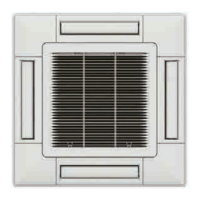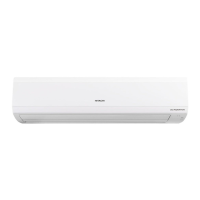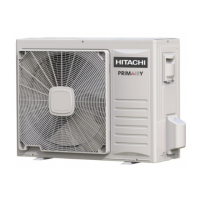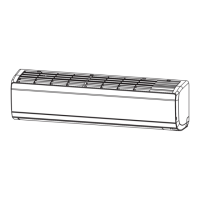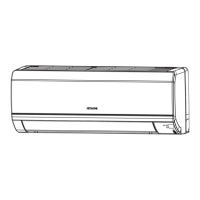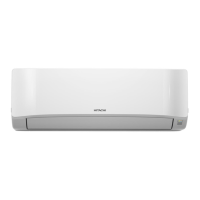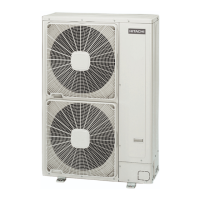3 Piping work and refrigerant charge
Refrigerant charge
SMGB0099 rev.0 - 12/2016
129
3
3.6 Refrigerant charge
? NOTE
For matters relating to the refrigerant charge in the installation, consult the Technical Catalogue and Service Manual corresponding to the
outdoor units of the UTOPIA or SET FREE systems.
3.7 Precautions in the event of refrigerant leaks
! DANGER
Fitters and the designers of the installations must strictly observe local and national legislation, and local codes regarding
safety requirements in the event of refrigerant leaks.
3.7.1 Maximum permissible concentration of hydrouorocarbon (HFC)
The R410A refrigerant gas, used in the equipment, is non-ammable and non-toxic.
! DANGER
In the event of a leak, the gas will spread around the room, displacing the air, and could therefore result in asphyxia.
According to Standard EN378-1, the maximum permissible concentration of HFC R410A gas in the air is 0.44 kg/m
3
.
Therefore, effective measures must be adopted to maintain the concentration of R410A gas in the air below 0.44 kg/m
3
in
the event of a leak.
3.7.2 Calculation of the concentration of refrigerant
1 Calculate the total quantity of refrigerant R (kg) charged in the system; to do so, connect all the indoor units of the
rooms in which you wish to have air conditioning.
2 Calculate the volume V (m
3
) of each room.
3 Calculate the refrigerant concentration C (kg/m
3
) of the room in accordance with the following formula:
R / V = C
R: total quantity of refrigerant charged (kg).
V: volume of the room (m
3
).
C: refrigerant concentration ( = 0.44 kg/m
3
for R410A gas).
3.7.3 Countermeasures in the event of refrigerant leaks
The room should have the following characteristics in case of a leak of refrigerant:
1 Opening without shutter to permit the circulation of fresh air in the room.
2 Opening without door measuring 0.15%, or greater, of the oor surface.
3 A fan with a capacity of at least 0.4 m
3
/minute per ton of Japanese refrigeration (=volume moved by the compressor /
5.7 m
3
/h) or above, connected to a gas sensor in the air conditioning system that uses refrigerant.
! DANGER
Special attention should be given to areas where the refrigerant may be deposited and stay in the room, such as basements or
similar, as the gas is heavier than air.
